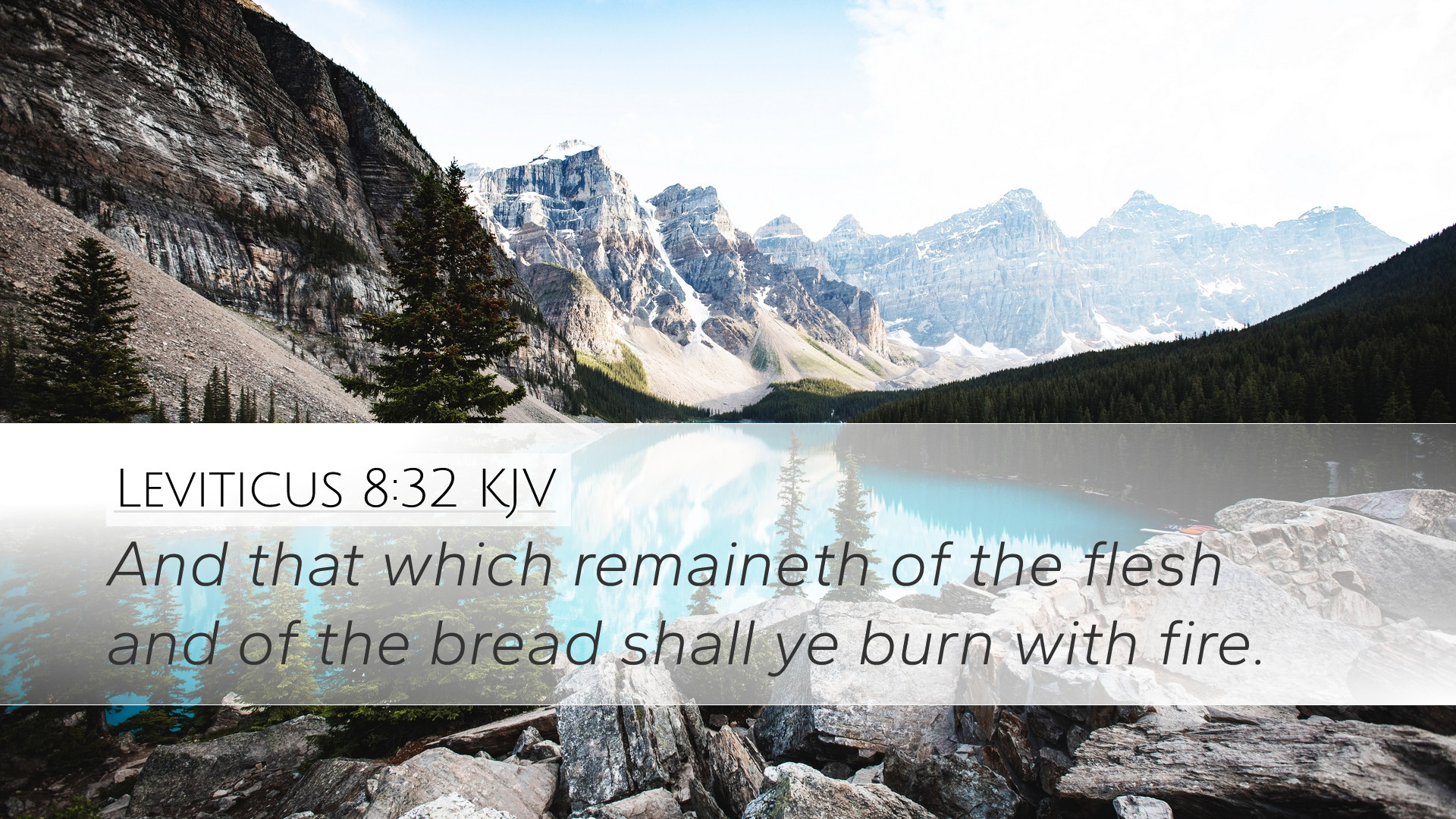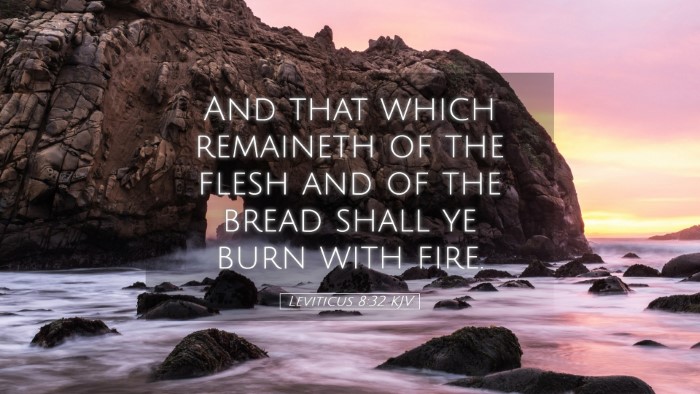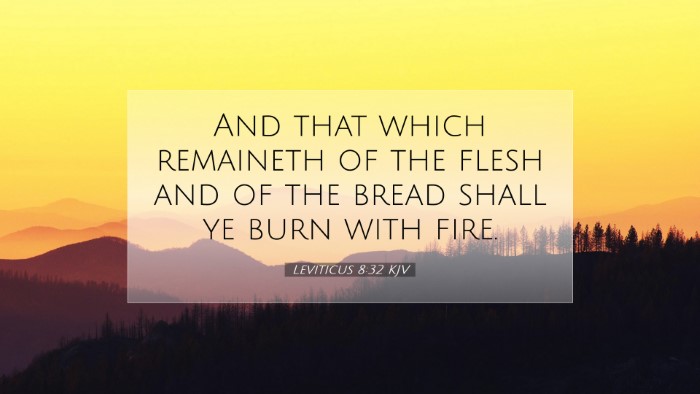Commentary on Leviticus 8:32
Bible Verse: "And the rest of the flesh and the bread that is in the basket of the consecrated offerings you shall burn with fire." (Leviticus 8:32)
This verse comes from the context of the consecration of Aaron and his sons as priests, marking the establishment of the Levitical priesthood. As such, it carries significant theological implications for the Israelite community and serves as a vital component in the understanding of holiness, sacrifice, and God's covenantal relationship with His people.
Understanding the Context
Matthew Henry notes that this chapter encapsulates the formal initiation of the Aaronic priesthood, emphasizing the holiness required in approaching God. The sacrifices detailed here lay foundational spiritual lessons for the Israelites, illustrating the seriousness of sin and the essential need for atonement.
Key Elements in the Verse
- The Flesh and Bread: The mention of "the rest of the flesh and the bread" represents the leftover parts of the offerings, which symbolize total dedication to God. Albert Barnes elucidates that these elements not only illustrate the completion of offerings but also serve to remind the people that nothing should be wasted in the presence of God.
- Burning with Fire: The directive to burn the remains signifies a total consumption by fire, which speaks to the act of sanctification, as nothing deemed unholy or common could remain. Adam Clarke points out that fire is emblematic of God’s judgment and purification, thus reinforcing the attribute of divine holiness that must be respected in worship practices.
Theological Implications
This verse provides profound insights into the requirements of worship within the community of faith. The act of burning the unconsumed offerings teaches the lesson of complete devotion. Matthew Henry emphasizes that the portion burnt signifies God’s complete acceptance of the offering made on behalf of the people.
Moreover, the insistence on burning the leftovers reflects God's demand for holiness; as expressed by Patrick Fairbairn, it serves as a reminder that all that is offered must be entirely consecrated to Him. This highlights the principle that God requires the entirety of one’s offerings, not merely a token portion.
Holiness and Consecration
Leviticus 8:32 underscores the necessity of approaching God with a heart dedicated to holiness. Clarke asserts that the burning process not only symbolizes the eradication of impurities but also reaffirms the necessity of total consecration in the life of God’s servants. In this light, pastors and leaders today are called to reflect this principle by leading lives marked by holiness and dedication to service.
Furthermore, the act of burning represents a definitive separation from the common and the Profane, a concept reiterated throughout the Book of Leviticus. Each offering must be treated with the utmost respect and reverence, illustrating the seriousness with which worship should be approached.
Practical Applications for Today's Believer
The directives in Leviticus, while specific to the Israelites, also serve as rich sources of application for contemporary believers. Here are several points for reflection:
- Commitment to God: Just as Aaron and his sons were called to total dedication, modern believers are urged to present to God living sacrifices, as articulated in Romans 12:1. This implies not just offerings of material goods, but the totality of one’s life, thoughts, and aspirations unto God.
- Purity and Holiness: The fire that consumed the leftover flesh serves as a reminder of the need for personal holiness in our lives. Reflecting on 1 Peter 1:16, where believers are called to be holy as God is holy, is essential for those desiring closer intimacy with God.
- Consecrated Worship: Worship, which is a central aspect of community life, should mirror the earnestness reflected in the offerings described in Leviticus 8:32. Engaging in worship with a heart that seeks to honor and glorify God is imperative.
Conclusion
Leviticus 8:32 encapsulates foundational truths about worship, holiness, and the nature of offerings that remain relevant across centuries. The insights provided by commentators such as Matthew Henry, Albert Barnes, and Adam Clarke allow for a deeper understanding of the rituals prescribed in the text, pointing the reader towards a more profound engagement with God's expectations of holiness and service.
As we ponder these truths, may we be drawn into a deeper relationship with God, appreciating the full gravity of our offerings and the invitation to live a life consecrated to Him.


